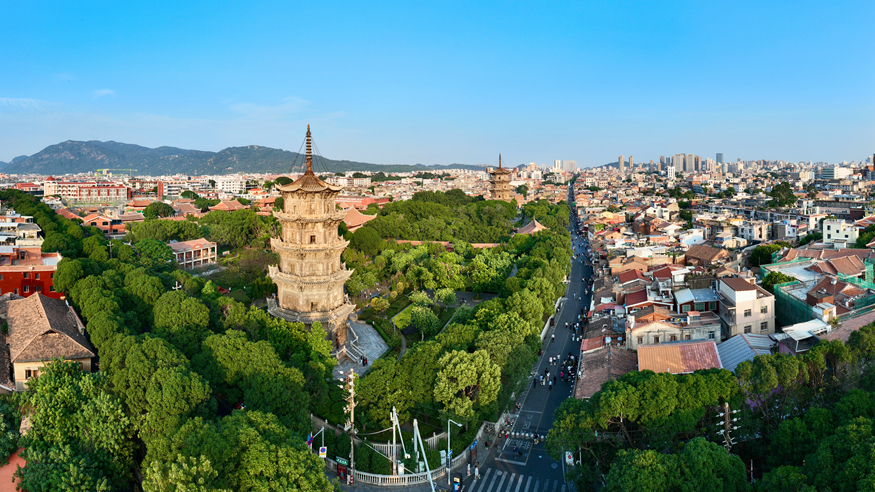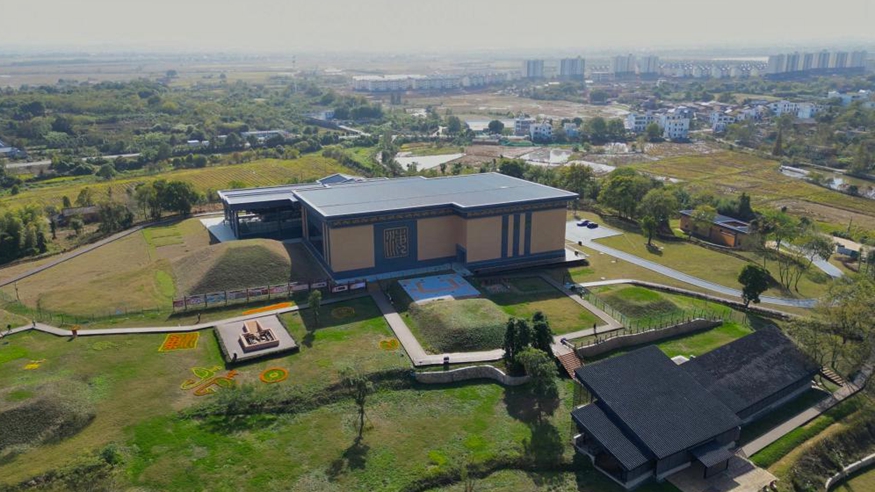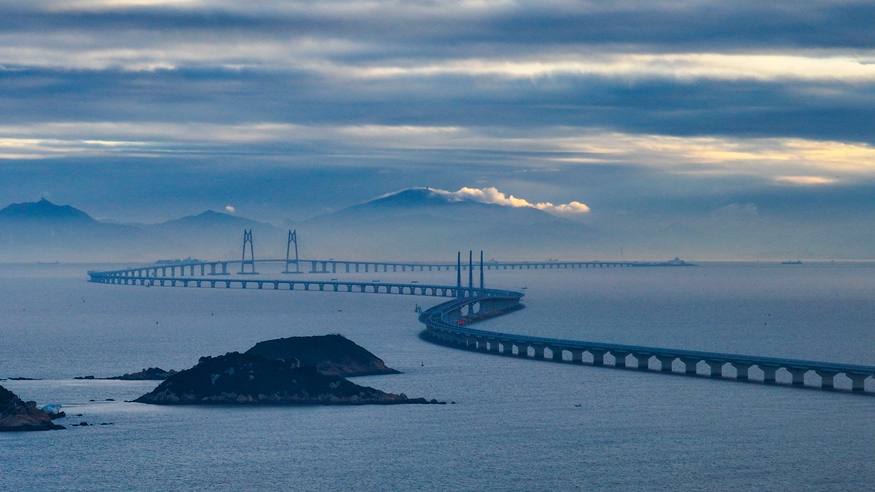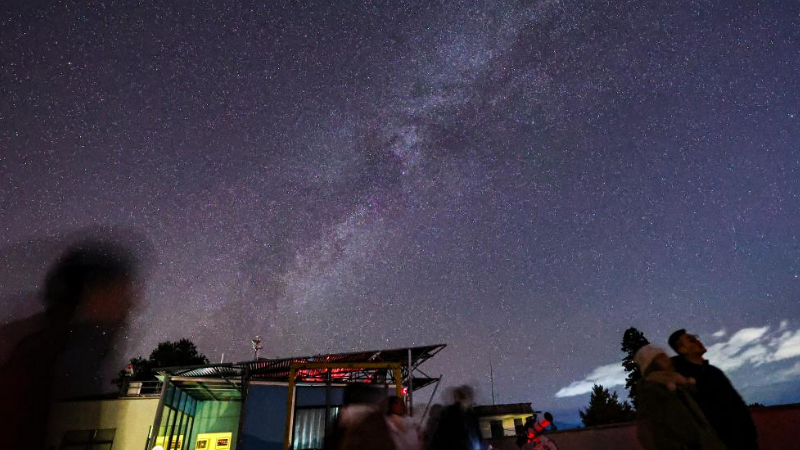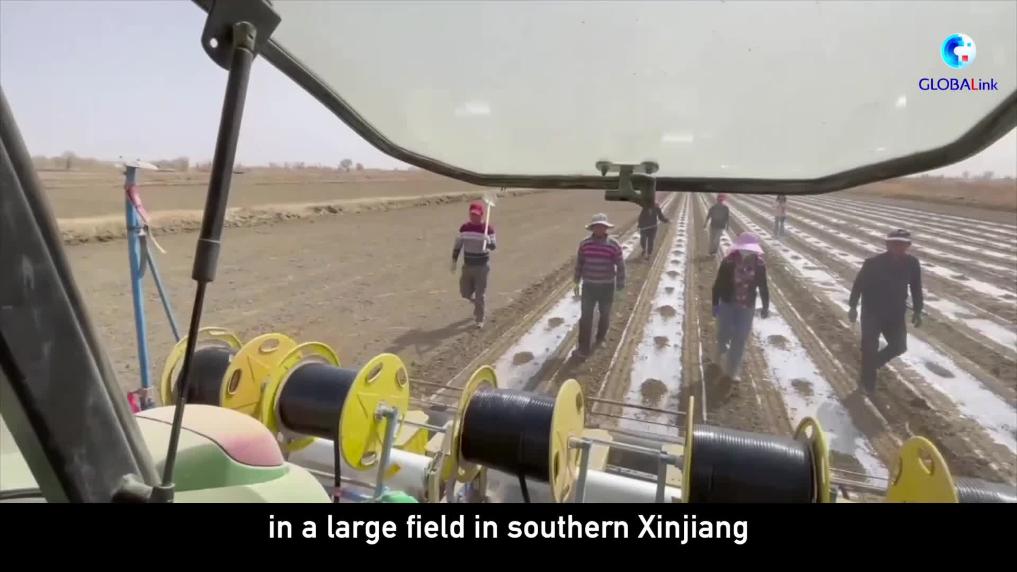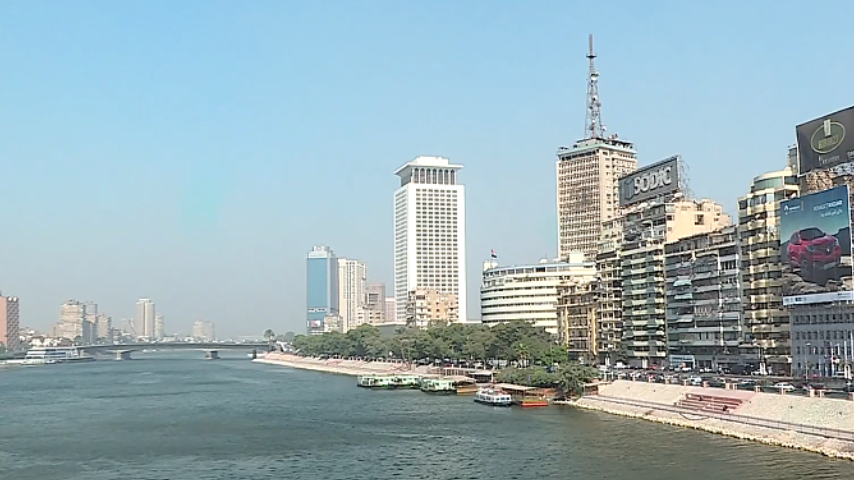This year has seen a record influx of migrants in Europe, sparking renewed debates and divisions over EU migration policies. Immigration has become the third rail of European politics.
LAMPEDUSA, Italy, Dec. 16 (Xinhua) -- On a chilly Monday evening in late November, hundreds of migrants, many of them bare-footed and without warm clothes, landed on Italy's southernmost island of Lampedusa, surviving an exhausting journey across the Mediterranean Sea after their departure from North Africa.
They disembarked from Italian Coast Guard patrol ships, waiting to be directed by police and Red Cross staff to the nearby migrant reception center. Some sang a jolly song, while others remained silent.
PORT OF CALL
The island of Lampedusa, 330 km from Tunisia, has been a hotspot for mass arrivals of migrants to Europe for years. But this year the problem is particularly acute, as arrivals peaked at 7,000 within two days in September while the island itself has 6,000 permanent residents.
"The number of migrants who arrived here increased compared to last year," Serena Corniglia, supervisor of migrant reception centers with the Italian Red Cross, told Xinhua near the overcrowded reception center in Lampedusa.
She said they worked around the clock to receive and transfer the migrants to Sicily. There they would be assigned to different immigration centers across the country via a relocation mechanism.
Migrant flows have become "a phenomenon that we have accepted and we have lived with it over years," said Giuseppe Palmisano, a bar owner in the town center. Residents often donate clothes and food to migrants, he said, but there is concern that migration impacts tourism, which is the lifeline of Lampedusa.
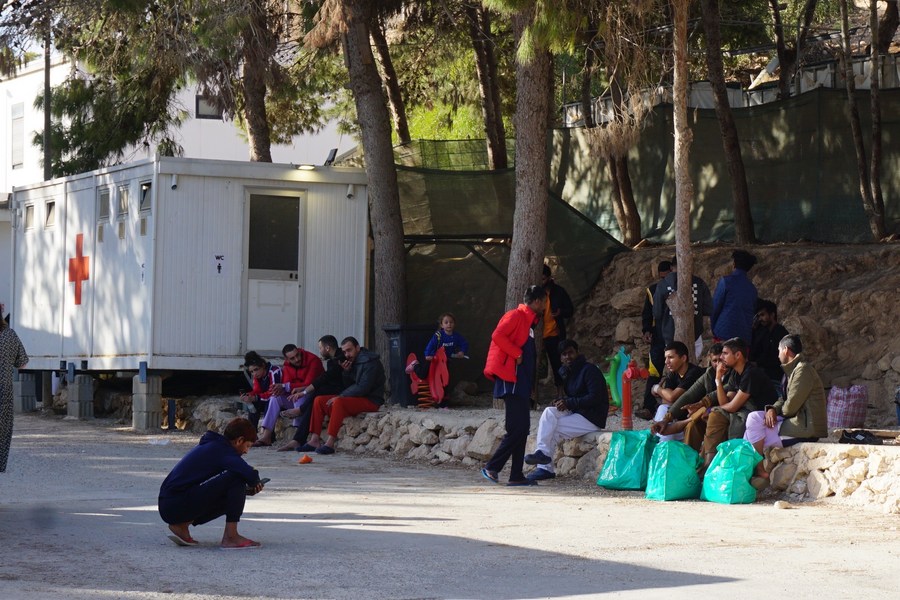
This photo taken on Nov. 21, 2023 shows migrants at a migrant reception center on Italy's southernmost island of Lampedusa. (Xinhua/He Fei)
Samsun Yoseef, a migrant from Ethiopia, arrived in Lampedusa from Tunisia by boat. He said he will never forget those three days he spent in that boat: "No food, no water, no sleep. I saw in my eyes, dead, dead, dead."
He was first transferred to Rome. "Now I'm so excited to be here," he told Xinhua with a broad smile. He said he wanted to go to Belgium or the United Kingdom, where he could speak English and find work. "First of all, it should be a safe place."
"It's not good in Africa. I want to change my life," Daniel Wolde, another migrant transferred to Rome, said. "Lucky men come to Italy. Others die in the desert or prison. I have a dream. I want to work and study in Europe to support my family and my people."
HEAVY BURDEN
Migration has returned as a hotly debated issue in the European Union (EU) while a fresh crisis is looming on the continent. Irregular crossings at the EU's external borders increased by 17 percent in the first 11 months of this year to over 355,300, surpassing full-year totals in any year since 2016, the European Border and Coast Guard Agency said.
Most migrants chose the Central Mediterranean route, a risky one that has seen many migrant shipwrecks due to severe weather conditions and overloading. United Nations data showed that more than 2,600 migrants have been reported dead or missing in the Mediterranean so far this year.
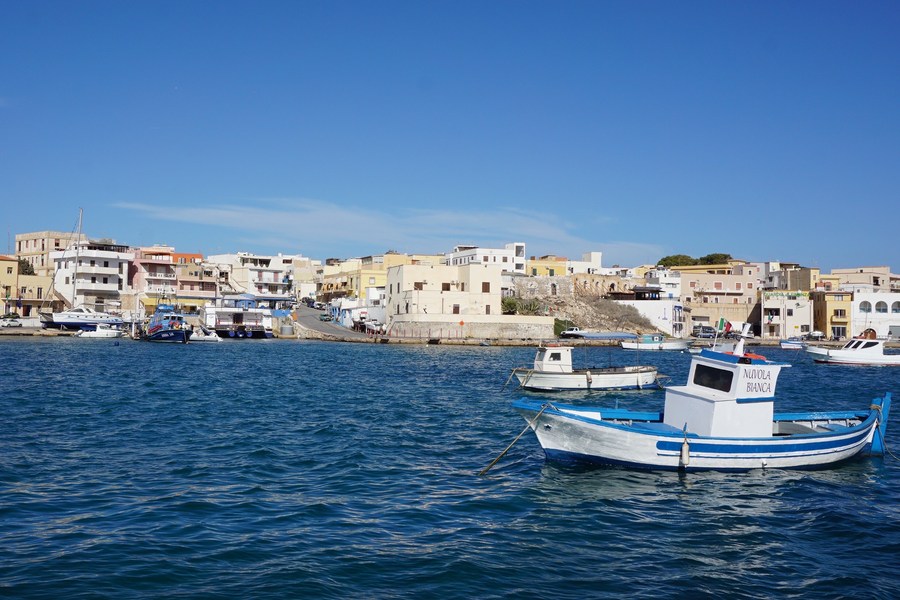
This photo taken on Nov. 21, 2023 shows a coastal scene of Italy's southernmost island of Lampedusa. (Xinhua/He Fei)
Experts said that instability in regions that feed the Mediterranean route -- Central and North Africa, the Middle East and parts of Asia -- has been the biggest factor behind the dramatic increase in migrant arrivals in Europe.
Meanwhile, conflicts in several global hotspots, weak economies, rising fuel costs and challenges to agriculture stemming from climate change have all played a role in forcing more people to flee, analysts said.
"It is a difficult decision to migrate, especially under such dire and risky circumstances," commented Ferruccio Pastore, director of FIERI, a Turin-based think tank that studies migrant issues. "The decisions are always multifactor that depend on individual circumstances, macroeconomics, global issues and contextual issues."
Europe had kept its door wide open for migrants for years until it started to feel overburdened. While the bloc's 27 member states plus Norway and Switzerland are projected to receive over one million asylum applications in 2023, anti-migrant sentiments are feeding populism in Germany, Slovakia and some other nations.
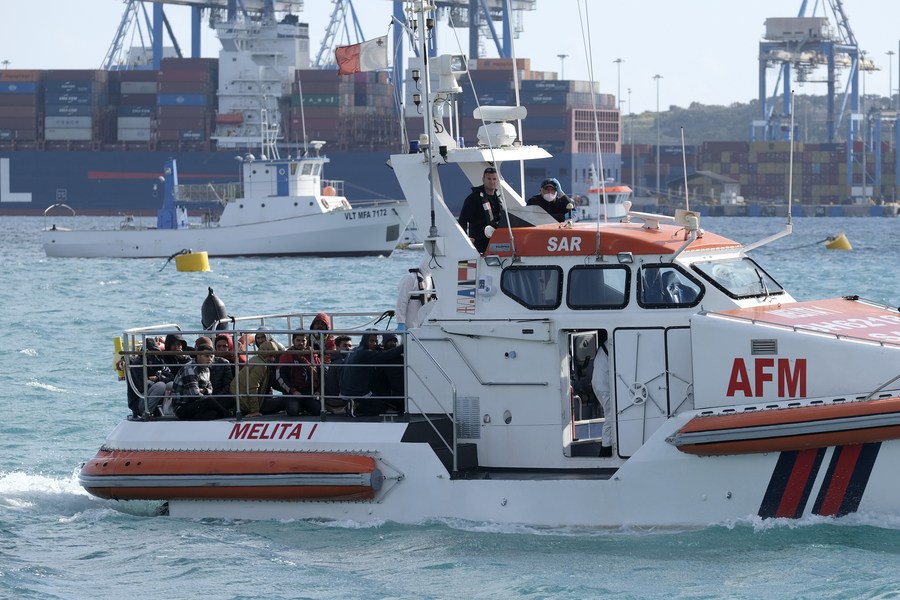
An Armed Forces of Malta's patrol boat carrying rescued migrants arrives in Marsaxlokk, Malta, on April 17, 2023. (Photo by Jonathan Borg/Xinhua)
Civil unrest over the killing of a teen of African descent in France sparked more governments' call for a tougher stance on migration. Disagreement over migration policy even led to the collapse of the Dutch coalition government in July.
As the EU is wrestling with the migration crisis and yet to achieve a common solution, some of its member states have tightened their borders over the past few months. In November, France reinstated border controls with the member countries of the Schengen free travel area citing public security concerns, and Germany has also introduced border checks in response to a sharp surge in asylum applications this year.
"The case of mass illegal entry of migrants is examined politically, economically, geographically, as well as based on the applicable experiences in matters of asylum and others," said Athanasios Drougos, a Greek senior analyst specialized in global security and international affairs.
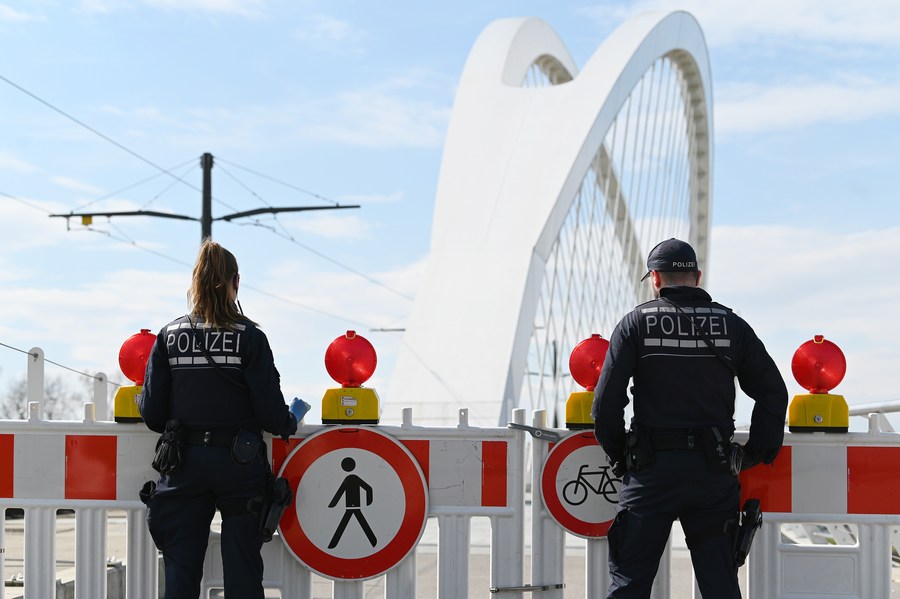
Police officers stand guard at the border between Germany and France in Kehl, Germany, March 17, 2020. (Photo by Ulrich Hufnagel/Xinhua)
INCHING FORWARD
The EU member states have been progressing with the long-stalled reform of a united migration policy, but given their divergent positions, the talks are lengthy and difficult.
"From Scandinavia to the Eastern Mediterranean, opinions differ on several issues," Drougos said. "Then there are the governments of Hungary and Slovakia, which raise objections and cause delays."
Europe's main migrants landing spots, including Italy, Greece and Spain, have been asking their EU peers to shoulder more of the burden, while the Eastern European nations, such as Poland and Hungary, oppose the proposed mandatory migrant relocation quotas and commit to securing their borders.
Immigration has become the third rail of European politics, with October's informal EU summit in Granada, Spain, being an evident example, where the EU heads of state and governments failed to reach an agreement on addressing the pressing migration crisis.
The summit was described as "a semi-flop" in some media reports. Poland and Hungary asked to omit references to the bloc's views on migration from the Granada declaration. Poland's then Prime Minister Mateusz Morawiecki later said that Warsaw had blocked a decision to settle illegal migrants across Europe.
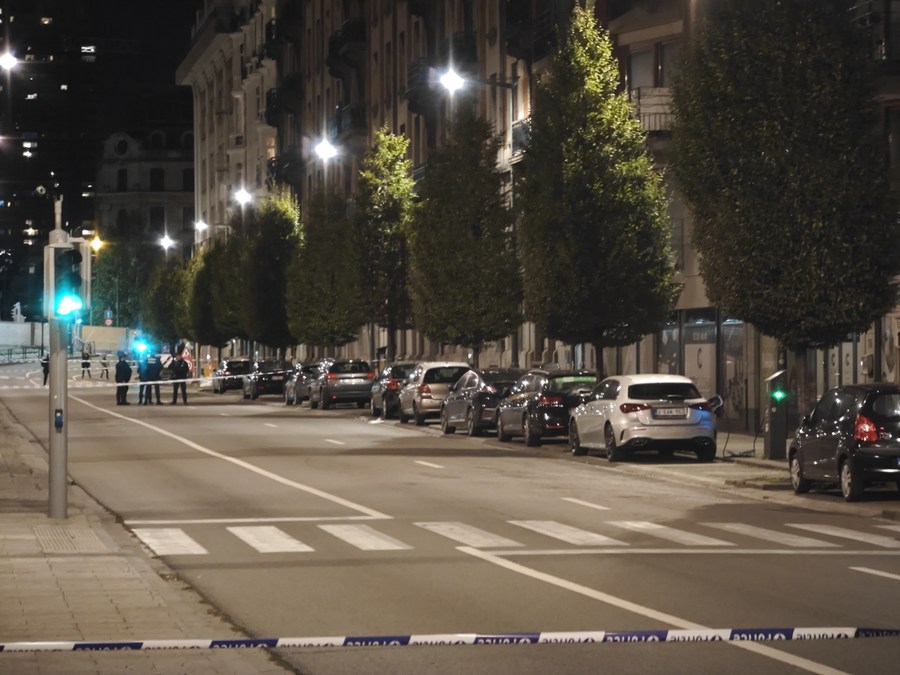
Police cordon off the site of a shooting in Brussels, Belgium, on Oct. 16, 2023. (Xinhua/Liu Yuxuan)
Why part of the European public are reluctant to accept more migrants? Drougos said the recent terror attacks in Paris, Brussels and certain German cities have made EU citizens suspicious. Meanwhile, many of the member states have coalition governments including hardliner nationalist parties, so frictions exist on matters of human trafficking and irregular migration, he said.
In absence of a common EU measure, leaders are pursuing their individual policies to deal with the surge in migrants. Some of them opt for stricter regulation, such as France, whose Senate has passed a bill intended to toughen immigration law.
Others seek solutions with a third country, within or out of the continent. For example, UK Prime Minister Rishi Sunak reached a deal with Rwanda last year to send illegal immigrants and asylum seekers to the east African country. However, the British Supreme Court has recently ruled the Rwanda policy unlawful.
Italy's Prime Minister Giorgia Meloni planed to build migrant centers in Albania to house migrants rescued by Italian boats. But Albania's Constitutional Court on Wednesday temporarily blocked the deal that Tirana signed with Rome, noting that a public hearing on Jan. 18 will make a decision.
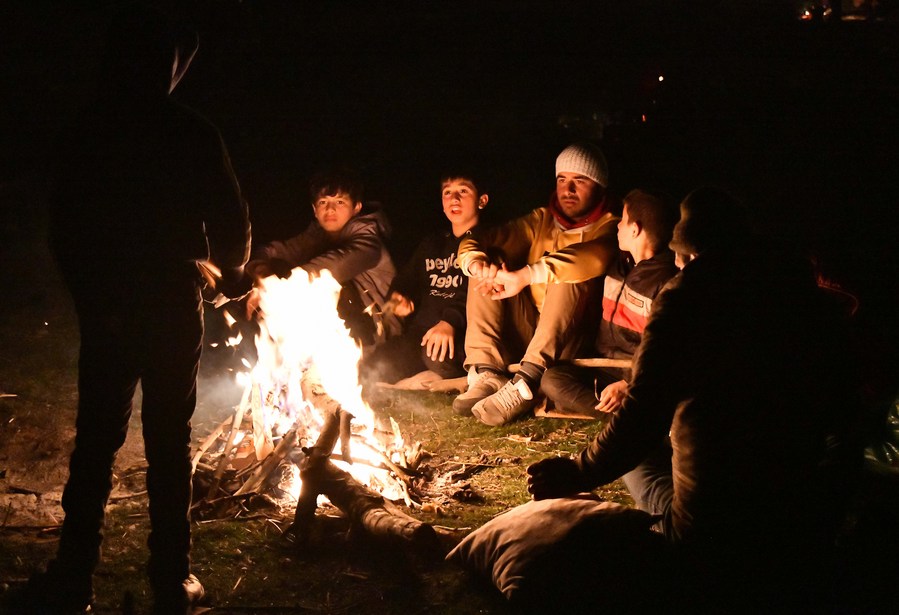
Illegal migrants gather around a bonfire as they try to warm themselves at Turkey's border with Greece in the province of Edirne, Turkey, on March 3, 2020. (Xinhua/Xu Suhui)
Over the past year, Loredana Implala from Sicily has settled down in Lampedusa and now works at a hotel. She told Xinhua that one night there was a live music performance on the island, and she saw a group of young migrants dance to the music. "There were people who welcomed them and danced with them, while others avoided them."
She said the scene struck her that the world consists of people with so many mindsets. "But one thing that struck me most is that if you look into (the migrant people's) eyes, you will always find they have that light. They all hope to find a better life." ■

